Postpartum Mental Health: Books for New Parents
If you’re pregnant or a new mom/parent who is struggling with a perinatal mood and/or anxiety disorder, you’re not alone. In fact, statistics show that 1 in 7 moms and 1 in 10 dads suffer from a postpartum mood and anxiety disorder.
Even if this is not you, many find the transition to new parenthood to be challenging; from lack of sleep and time to take care of yourself, to adopting the new role of mom or dad and how that can shift one’s sense of self and identity, to losing a sense of freedom and the ability to be spontaneous, to the changes new parenthood can bring to friendships, family relationships, romantic relationships, marriages, and so much more, new parents often need — and deserve — extra TLC and support.
That’s why we’ve put together this roundup of some of our favorite, tried-and-true books on postpartum mental health for new parents, including how to manage postpartum mood and anxiety disorders. We hope these books can provide you, dear new parents, with an abundance of comfort, guidance and support. Without further ado, here’s our list of books for new parents:
Books for New Parents on Postpartum Mood and Anxiety Disorders
This Isn’t What I Expected by Karen Kleiman, M.S.W. & Valerie Davis Raskin, MD
Written by Karen Kleiman, MSW, director of the renowned Postpartum Stress Center (highly encourage you to check out this organization!), and Dr. Valerie Davis Raskin, psychiatrist and co-founder of the Pregnancy and Postpartum Treatment Program at the University of Illinois at Chicago College of Medicine, this book is a Godsend in helping you identify if you may be struggling with a perinatal mood disorder, and when it’s time to seek professional help. Throughout the course of this book, you’ll learn how to manage the often-debilitating effects of PPD, such as panic attacks, obsessive-compulsive thoughts and urges, negative thinking, and more. It also offers guidance for partners, family and friends on how to be supportive and helpful to the new parent who is struggling.
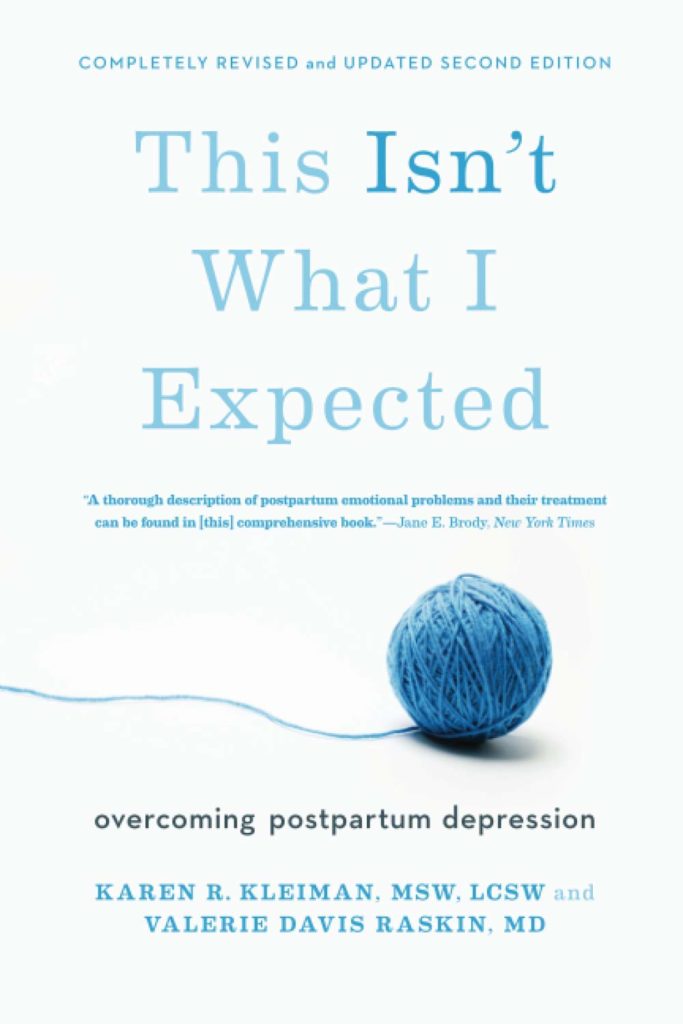

Good Moms have Bad Days: Understanding Postpartum Mood Disorders by Eren Simpson
Just because you are suffering from a perinatal mood disorder, and/or may not find every moment of motherhood joy-filled and exhilarating, does not mean you are a bad mom. In fact, you are a good mom who is doing the best you can — and you need and deserve some support.
According to author Eren Simpson, “This book is intended to arm women and their families with the knowledge they need about what is happening to their minds and bodies during the postpartum period. This book includes information about treatment options, stories from survivors, plus research and movements being conducted across the country to make mental health and maternal mental health a priority.”
Readers say this book is honest, refreshing and the real stories from survivors are poignant and inspiring. For those who want more — a community to connect with — Simpson also created a corresponding website for moms battling PPD and/or PPA to come together and be heard.
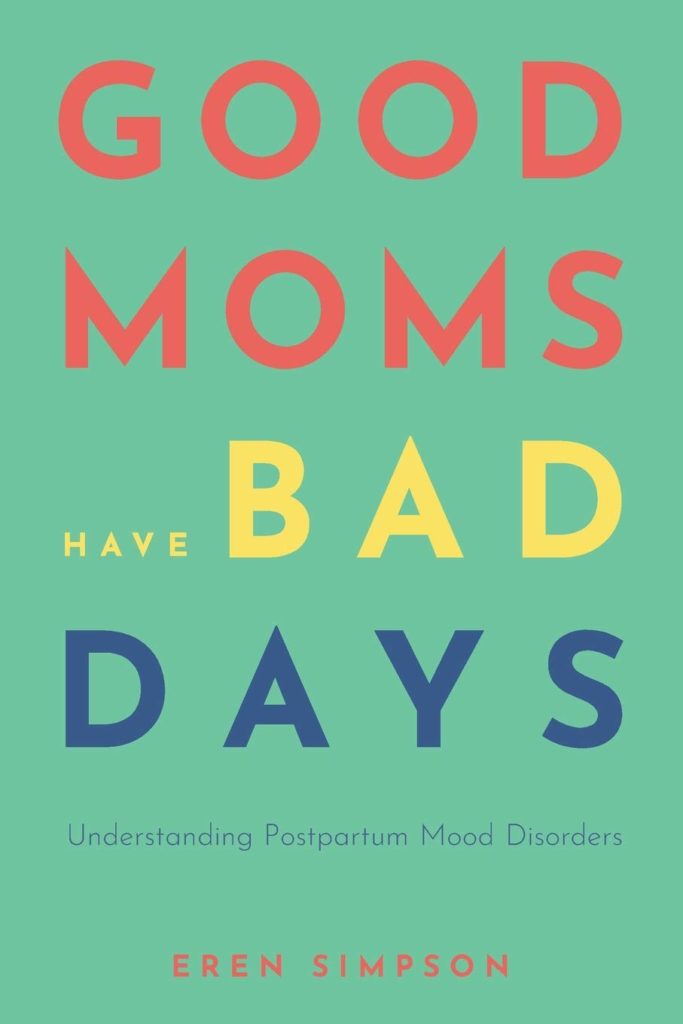

The Mother-to-Mother Postpartum Depression Support Book: Real Stories from Women Who Lived Through It and Recovered by Sandra Poulin
When you’re struggling with a perinatal mood disorder, sometimes the most helpful thing is to know you’re not alone. This book does that just. Chock full of stories from women who have suffered and recovered from postpartum depression, The Mother-to-Mother Postpartum Depression Support Book feels like a wonderful warm hug from others who have “been there,” along with the knowledge that you’re going to survive and be OK.
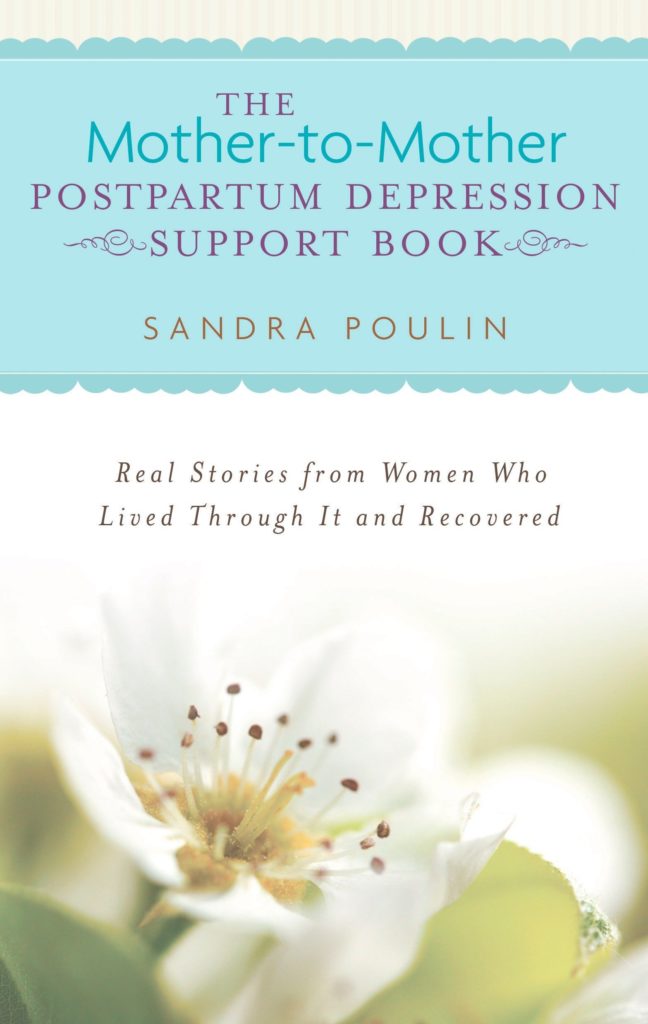

Down Came the Rain by Brooke Shields
Model and actress Brooke Shields shares her very honest and raw experience about dealing with — and recovering from — postpartum depression after her daughter was born. Shields’s incredibly candid account has paved the way for so many women to feel comfortable sharing their own struggles, as well as seek help.
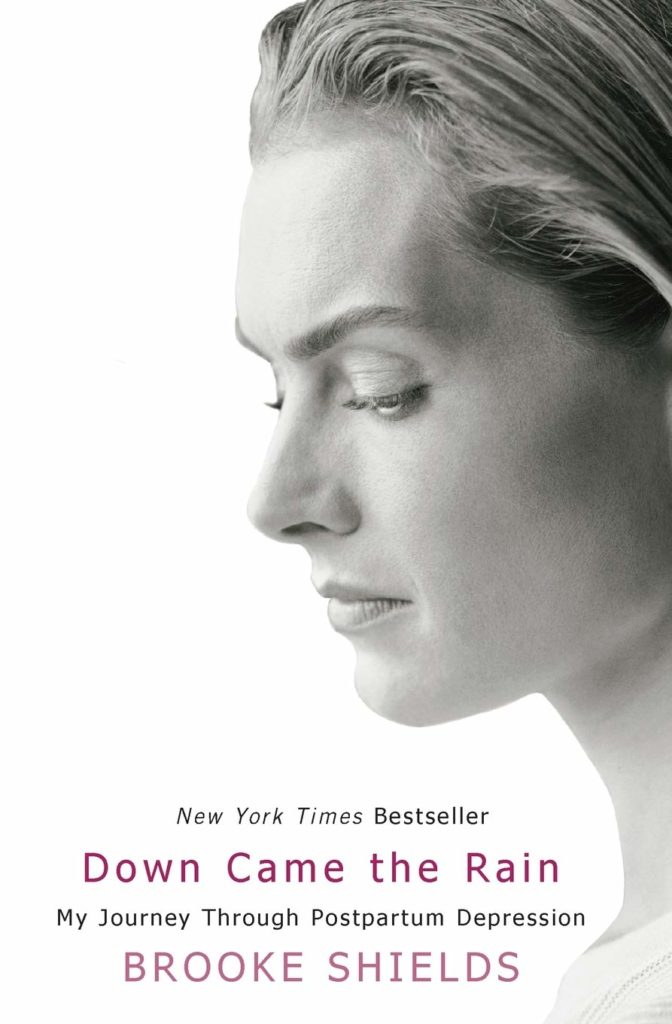

Good Moms Have Scary Thoughts by Karen Kleiman, M.S.W.
Many people don’t realize that over 90 percent of new moms have scary, intrusive, unwanted thoughts about their baby, themselves or new motherhood (“What if I accidentally drop the baby?” “What if I hurt the baby?” “I wasn’t cut out to be a mom.”)
The reason many people don’t know this is because the moms who have these thoughts are too terrified and ashamed to share them — terrified that someone will see them as “unfit” and take their baby away, and ashamed because “good moms aren’t supposed to have these thoughts.”
But, as Kleiman explains in this book, this type of thinking doesn’t make you an unfit or terrible mother. It makes you a mother who loves her baby, AND who is struggling with scary thoughts. Both are true — you love your baby, and you’re struggling. The good news is that there is help, and if you’re one of the 90+ percent, you don’t have to live in fear or shame anymore.
This book offers tons of support, guidance and hands-on exercises to help new moms challenge and banish their scary thoughts and begin to feel good again.
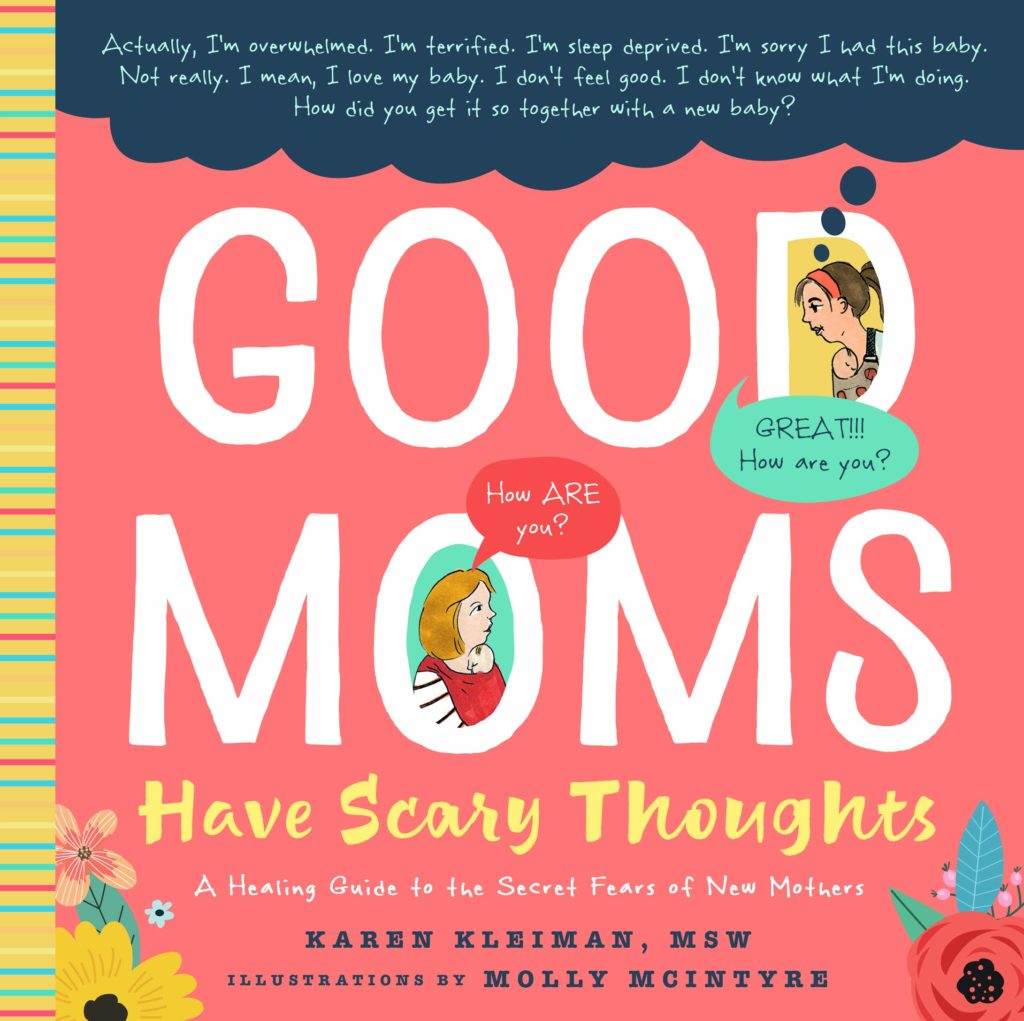

Dropping the Baby and Other Scary Thoughts by Karen Kleiman, M.S.W. and Amy Wenzel, PhD
This is the 2nd edition of an incredibly important and profound book intended to help parents understand where scary and intrusive thoughts come from and how to overcome them. This edition offers updated information about the science behind intrusive thoughts, as well as guidance for parents about how to seek help (and how to work through the stigma associated with admitting to their scary thoughts). It also describes new treatment approaches, and case descriptions from moms who have battled intrusive thinking, and survived.
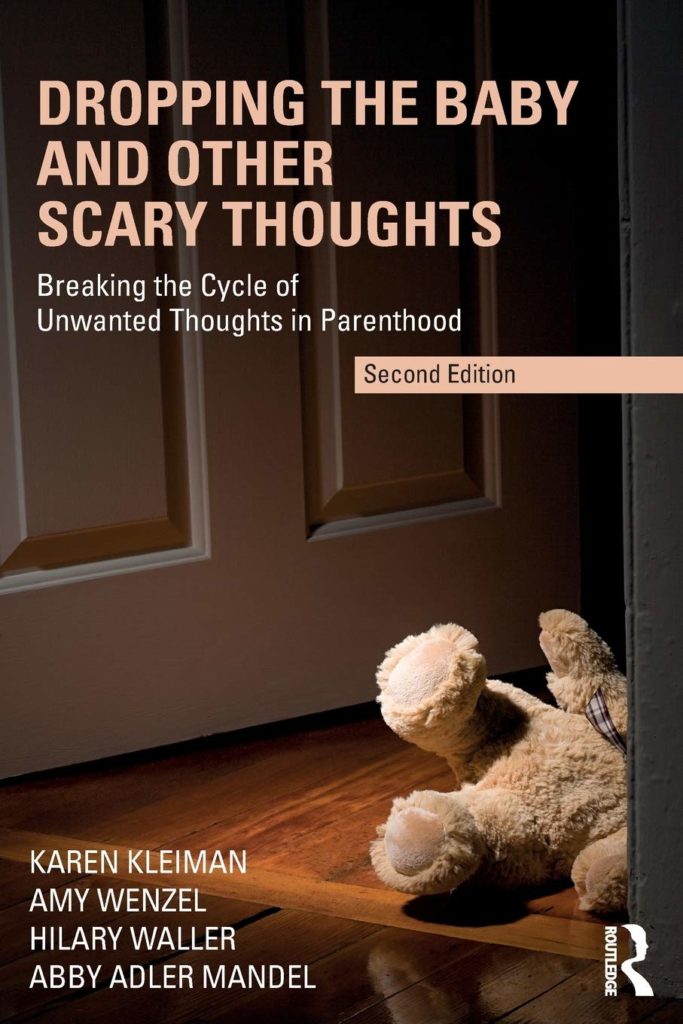

Workbooks for Postpartum Depression and Anxiety
The Postpartum Depression Workbook: Strategies to Overcome Negative Thoughts, Calm Stress, and Improve Your Mood by Abigail Burd LCSW PMH-C
This is an easy-to-follow, practical and super informative postpartum depression workbook. All the tools and strategies are based in cognitive behavior therapy (CBT), which works to help you challenge your negative and destructive thought patterns and behaviors, and replace them with more positive, beneficial and productive thoughts and behavioral patterns instead.
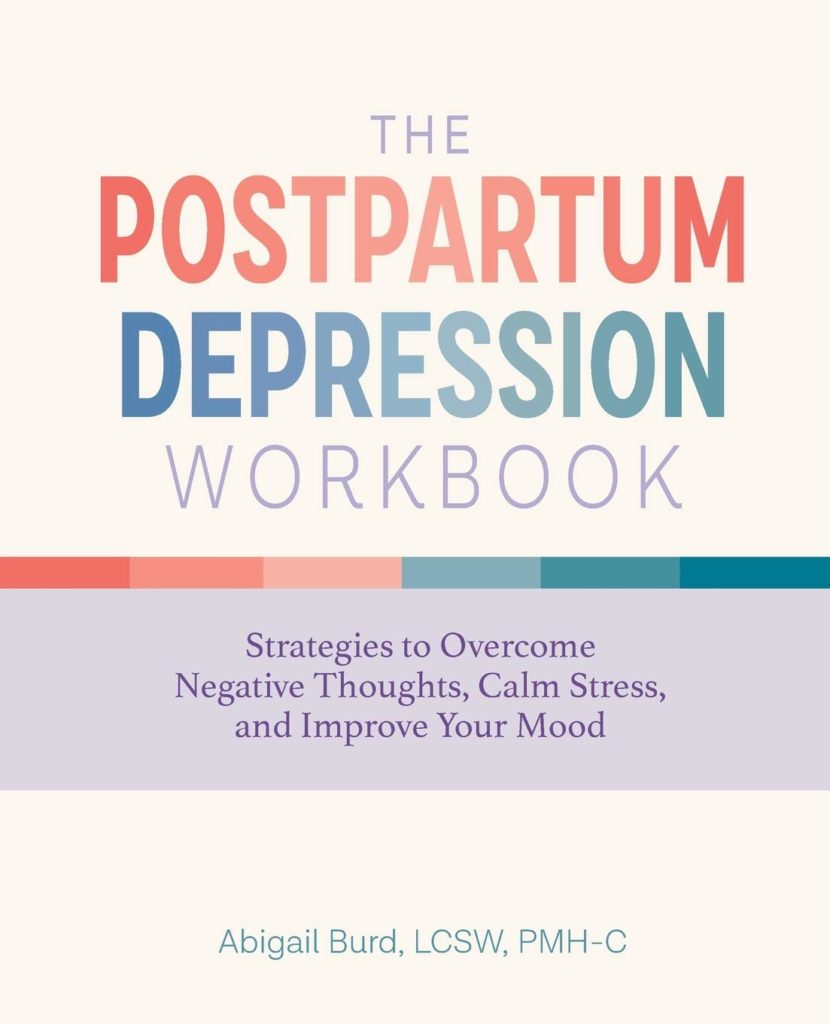

Pregnancy and Postpartum Anxiety Workbook: Practical Skills to Help You Overcome Anixety, Worry, Panic Attacks, Obsessions, and Compulsions by Pamela S. Wiegartz & Kevin L. Gyoerkoe
I suffered from pregnancy and postpartum anxiety, and this workbook was a lifesaver for me. Like the previously discussed workbook, The Pregnancy and Postpartum Anxiety Workbook also utilizes CBT to help new moms manage their overwhelming feelings of anxiety and panic.
The easy-to-do exercises and worksheets are meant to “reduce the frequency and intensity of anxious feelings” during the pregnancy and postpartum period. To be honest, I didn’t realize how much my postpartum anxiety was impeding on my happiness and life until I started working through the exercises in this book. It was a helpful tool (among others) in allowing me to get a handle on my out-of-control panic. Plus, it helped my husband understand more of what I was going through, and how to support me.
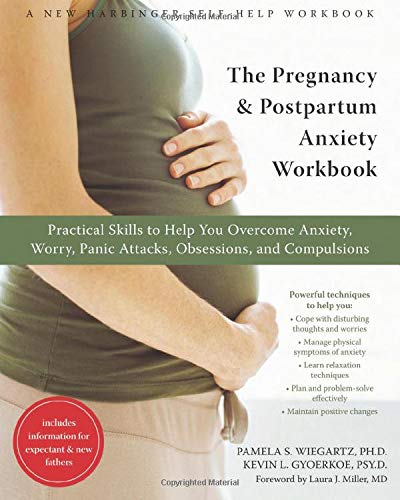

Moods in Motion: A Coloring and Healing Book for Postpartum Moms by Karen Kleiman, MSW and illustrated by Lisa Powell Braun
Adult coloring books are certainly having their day in the sun, and there’s a good reason for that: the process of coloring can be highly therapeutic, and when we’re drawing, we’re focused and totally in-the-moment. Moods in Motion offers something unique — far different from many of the other postpartum mental health workbooks out there.
Each page showcases a scary or intrusive thought a new mom might have, along with a corresponding image to color; then the following page offers a healing statement, along with a corresponding image illustrating that. According to the book’s description — and I really love this — “Moods in Motion is more than a coloring book which will ease stress. It is an illustrated guide toward recovery which enables any postpartum woman to actively participate in her healing. As you color your way through the symptom and healing pages, you will envision and internalize suggestions that bring you closer to feeling like yourself again!”
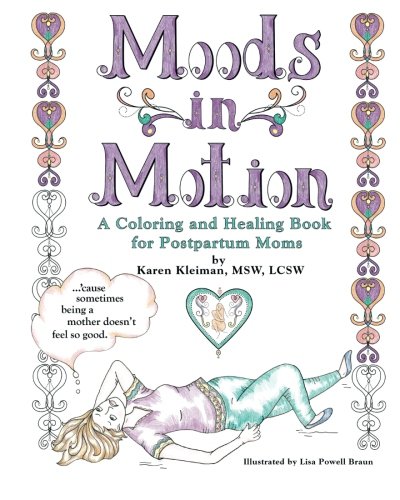

Books For Mom’s Overall Mental Health and Wellbeing
Strong as a Mother: How to Stay Healthy, Happy, and (Most Importantly) Sane from Pregnancy to Parenthood: The Only Guide to Taking Care of YOU! By Kate Rope
This book is one of the only in the postpartum mental health and parenting book genres I could find that focuses solely on Mom’s wellbeing. This is so important — and I wish there were more books like this — because after women have a baby, so often their physical and emotional needs fall to the backburner. After enduring 9 months of pregnancy followed by childbirth (and the myriad of changes to everything from their bodies, to hormones, to relationships, to roles, to careers and lives), they are expected to quickly recover — get their sh*t together — so they can take care of their baby. But moms need support, care and love too, and this book honors that, and gives new mamas permission to prioritize themselves and their needs.
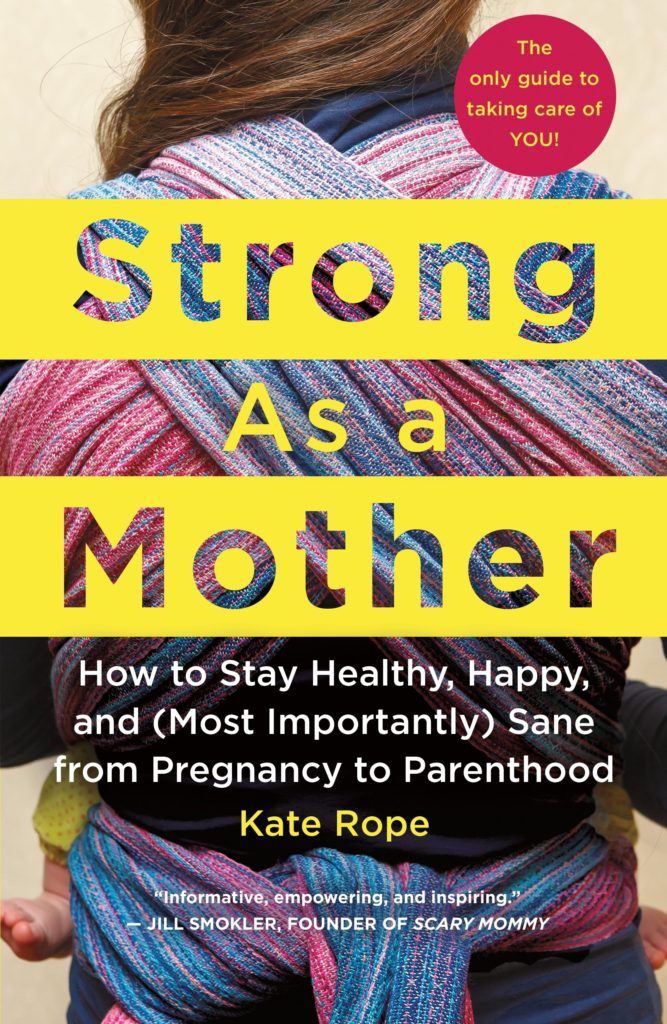

You are a F*cking Awesome Mom: So Embrace the Chaos, Get Over the Guilt and Be True to You by Leslie Anne Bruce
If the previous book is like your sweet, even-tempered best friend giving you warm hugs and kind encouragement, this book is your sassy, mouth-like-a-sailor sister telling you exactly how it is. In this hilarious, honest and poignant book, Bruce wholeheartedly acknowledges how crazy, chaotic and disorienting the transition to new motherhood can be, while, with an abundance of wit and authenticity, offers loads of inspiration and encouragement to new mamas.
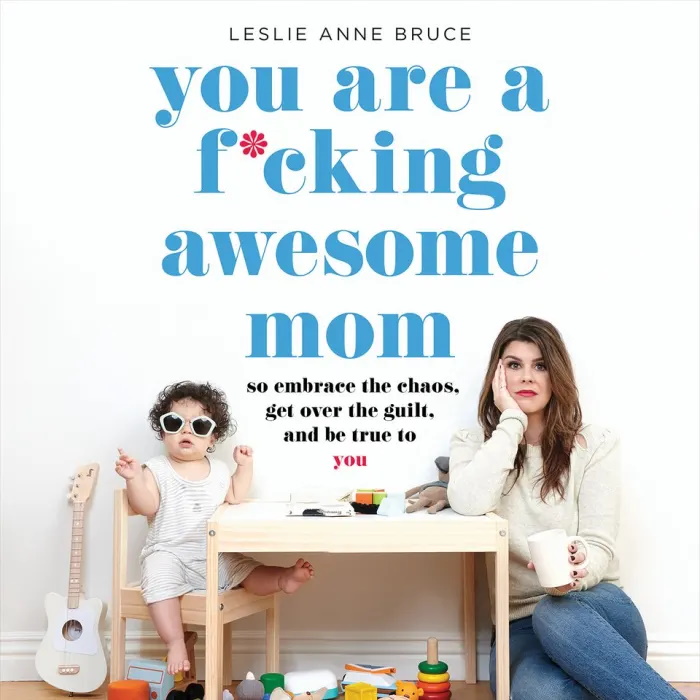

Books for Fathers/Partners
Sad Dad: An Exploration of Postnatal Depression in Fathers by Olivia Spencer
Did you know that dads can suffer from postpartum mood and anxiety disorders too? It’s true. This book aims to shed light on the male and/or partner experience of postpartum depression, and includes research and interviews with experts in this field. It’s really one of the only books out there (that I know of) that truly hones in on partner PPD.
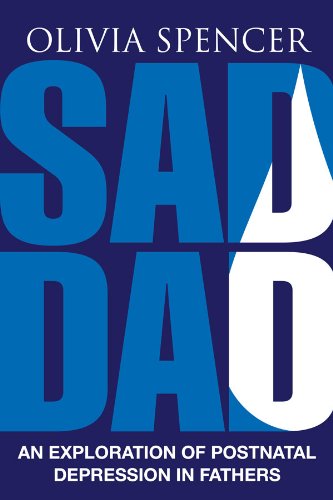

The Postpartum Husband: Practical Solutions for Living with Postpartum Depression by Karen Kleiman, M.S.W.
This book isn’t so much for dads struggling with postpartum depression, but more about how they can best support their partner who is suffering. It’s written specifically for the dad/partner, so he/she can be as supportive and responsive as possible. The information is presented in an extremely easy-to-read and concise way — bite-sized chapters with bullet points — making it simple for partners to easily and quickly absorb the pertinent info.
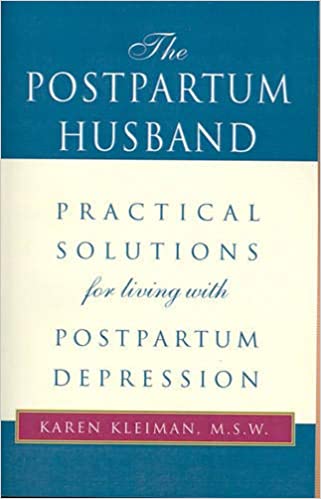

New parenthood doesn’t come easily for everyone, and if this is you — you’re not alone. It didn’t come easily for me, either (you can read my story here). Whether parenthood isn’t exactly what you thought it would be and you’re struggling to take care of yourself physically, mentally or emotionally postpartum, or you think you might be dealing with a perinatal mood and anxiety disorder, there are resources and help available.
I hope you can find solace in some of these books for new parents — particularly in knowing that you are not alone, and that there are ways to feel better. In addition to the books listed here, I also encourage you to seek additional support — whether through a postpartum mental health professional, a postpartum mental health support group, a new parent group, etc.
In the meantime, good luck new parents! You will get through this time and be stronger for it. Never forget that you’re a good parent — exactly the parent your child(ren) needs you to be. You got this.
Happy reading.